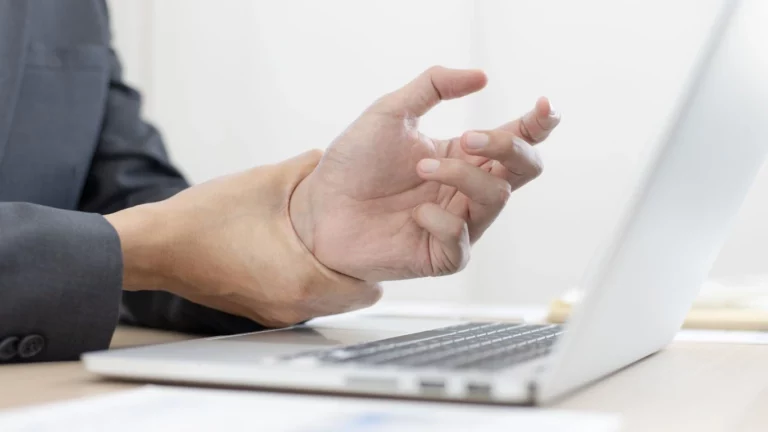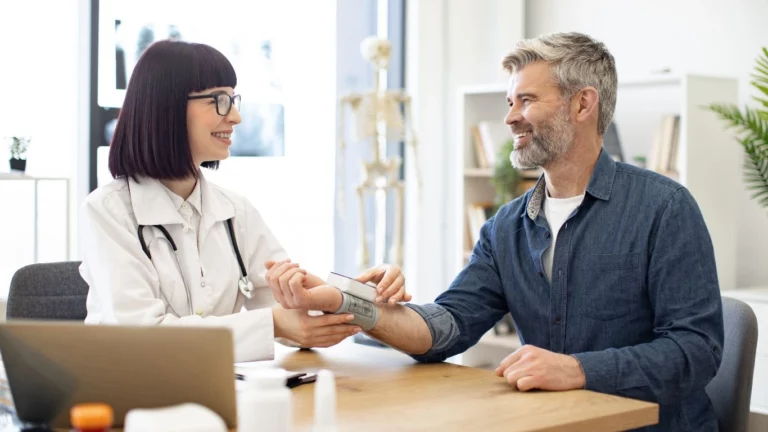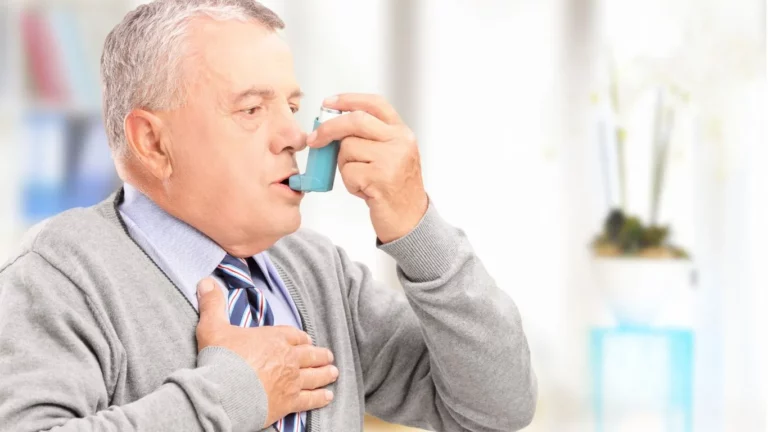Understanding Hypertension and Blurry Vision Symptoms: Key Warning Signs & Solutions
As a seasoned Internal Medicine Physician with a focus on hypertension management, I’ve seen firsthand the profound impact hypertension can have on a patient’s overall health. One of the often overlooked symptoms of hypertension is blurry vision, which can sometimes be a red flag indicating the presence of high blood pressure. It’s a tricky symptom because many people don’t even realize their vision is being affected until it becomes severe. If you’ve ever experienced blurry vision and wondered if it’s linked to high blood pressure, you’re not alone. In this article, I’ll break down the relationship between hypertension and blurry vision, share my personal experiences, and provide practical tips for managing both your blood pressure and your eye health.
What is Hypertension?
Hypertension, or high blood pressure, is when the force of blood pushing against the walls of your arteries is consistently too high. Over time, this puts extra strain on your heart and blood vessels, increasing your risk for heart disease, stroke, kidney failure, and even vision problems. You might not notice any symptoms at first, which is why it’s often called the “silent killer.” Regular check-ups and monitoring your blood pressure are crucial in identifying and managing hypertension early. As a physician, I can’t stress enough how vital it is to stay proactive about your health, especially if you have a family history of hypertension.
How Does Hypertension Affect Your Eyes?
The link between hypertension and blurry vision symptoms is quite real. High blood pressure can cause damage to the tiny blood vessels in the eyes, leading to a condition known as hypertensive retinopathy. This condition occurs when the blood vessels in the retina (the light-sensitive layer at the back of your eye) become narrowed or blocked due to the pressure of the blood. In severe cases, this damage can cause vision loss. While the symptoms of hypertensive retinopathy may not always be noticeable at first, blurry vision is one of the early signs that your blood pressure might be getting out of control.
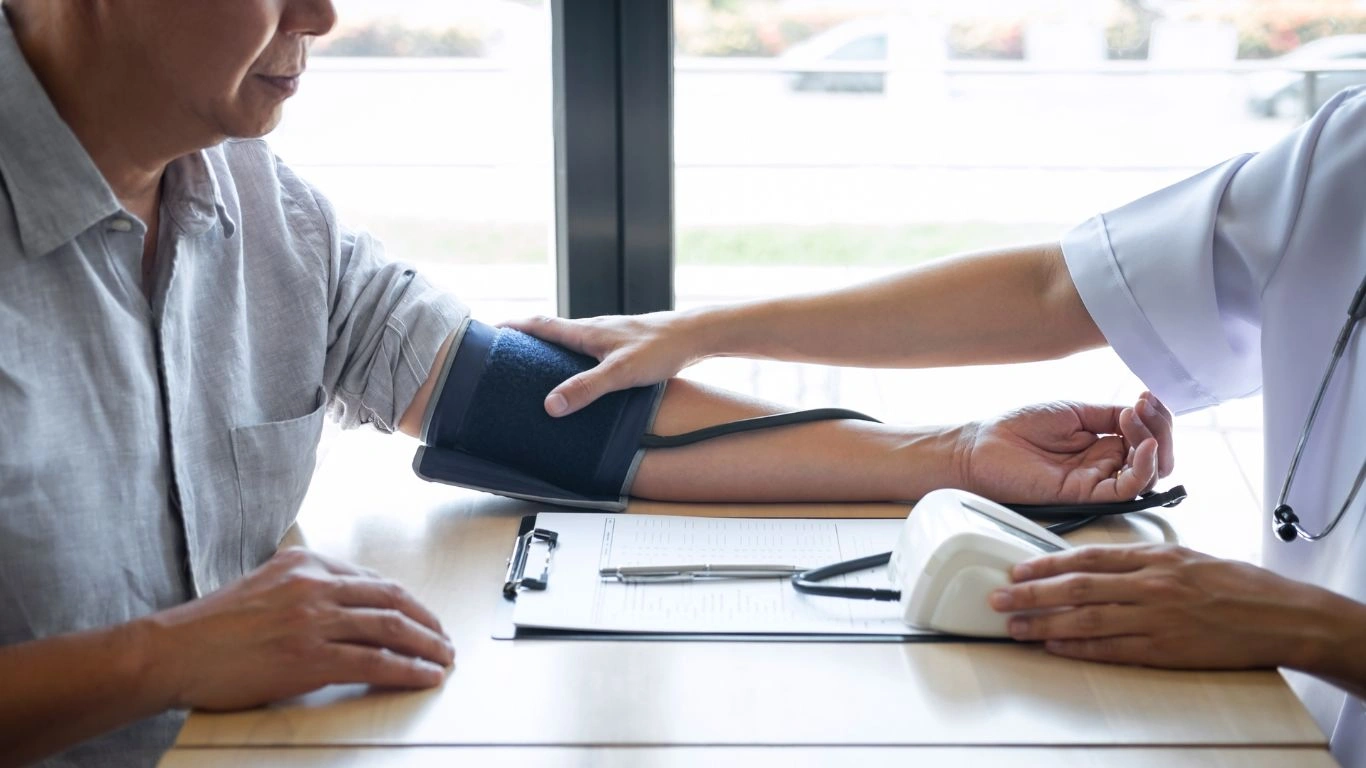
Blurry Vision and Hypertension: What You Should Know
If you’re experiencing blurry vision, it might not be just a sign of needing new glasses. When hypertension begins to damage the retina, the effects can range from mild blurry vision to complete loss of vision if left untreated. In my practice, I’ve often had patients come in complaining of their vision not being as sharp as it used to be, or they notice a gradual decline in clarity. Blurry vision caused by hypertension can happen suddenly, or it can develop over time, which is why it’s so important to have regular eye exams and keep your blood pressure in check.
But what exactly happens to the eyes when blood pressure rises? Well, the increased pressure can cause the blood vessels in the retina to thicken and narrow, reducing the amount of oxygen and nutrients that reach the eye. This can lead to fluid leakage, which causes swelling and blurry vision. The severity of these symptoms can depend on how high your blood pressure is, and whether or not it’s been controlled for a while. It’s a reminder of just how much our circulatory health is interconnected with other parts of our body—our eyes being no exception.
Signs You Might Be Dealing with Hypertensive Retinopathy
In addition to blurry vision, there are a few other signs you may experience if your hypertension is affecting your eyes:
- Sudden loss of vision in one or both eyes.
- Visual disturbances such as seeing spots or flashes of light.
- Difficulty seeing in low light or noticing that your vision isn’t as clear as it used to be.
- Eye pain or discomfort, which can sometimes occur along with blurred vision.
While these symptoms might not always mean you have hypertensive retinopathy, they are definitely worth investigating. If you notice any of these signs, it’s crucial to see a doctor or optometrist immediately. The sooner you address these symptoms, the better your chances are of preventing permanent damage to your vision.
What Causes Hypertension and How Can It Be Managed?
Hypertension doesn’t just happen overnight. It develops over time, often due to a combination of factors. These can include:
- Poor diet – High salt intake, excessive alcohol consumption, and a diet lacking in fruits and vegetables can contribute to high blood pressure.
- Lack of physical activity – A sedentary lifestyle can lead to weight gain and increase your risk for hypertension.
- Genetics – If high blood pressure runs in your family, you may be at a higher risk of developing it.
- Age – As we get older, our blood vessels naturally become less flexible, which can contribute to higher blood pressure.
- Stress – Chronic stress can also play a significant role in raising your blood pressure.
The good news is that managing hypertension is possible with lifestyle changes and, when necessary, medication. As a doctor, I always start with recommending healthier habits, such as improving diet, exercising regularly, reducing salt intake, and managing stress. However, for many patients, medications such as ACE inhibitors, calcium channel blockers, and diuretics may be necessary to keep blood pressure in a healthy range. With the right treatment plan, most people can live normal, healthy lives without the fear of hypertension-related complications.
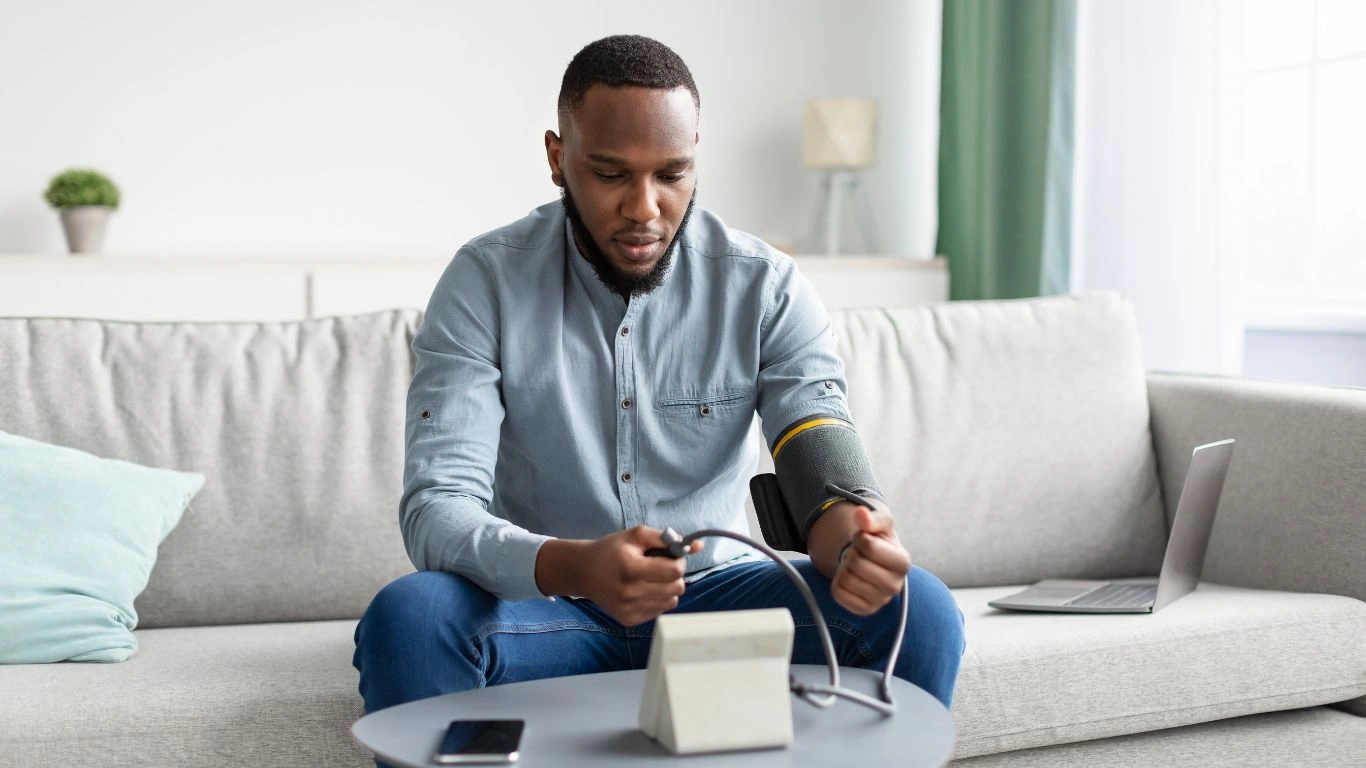
It’s also essential to monitor your blood pressure regularly. At home blood pressure monitors are affordable and easy to use, allowing you to keep track of your levels between doctor’s visits. If your blood pressure readings are consistently high, it’s crucial to work closely with your healthcare provider to adjust your treatment plan accordingly.
The Importance of Early Detection and Regular Eye Exams
As I mentioned before, high blood pressure often doesn’t show symptoms until it’s too late. One of the best ways to catch hypertension-related eye problems early is through regular eye exams. During these exams, an eye doctor can check for any signs of damage to the retina or other parts of the eye that could be linked to high blood pressure. If detected early, steps can be taken to prevent further damage to your vision and manage your blood pressure more effectively.

Remember, blurry vision is just one potential symptom of hypertension, and it doesn’t always mean you have hypertensive retinopathy. But if you experience it, don’t ignore it—get it checked out. Your eye health and overall well-being depend on it.
How Hypertension Can Progress to Vision Loss
As we continue our discussion on hypertension and blurry vision symptoms, it’s crucial to address the potential progression of these issues if left unchecked. Blurry vision is often the first sign that your eyes are being affected by high blood pressure, but what happens when the condition is ignored or poorly managed? Over time, untreated or uncontrolled hypertension can cause serious damage to the blood vessels in your eyes, leading to a condition known as hypertensive retinopathy. If the blood vessels in the retina become severely damaged, they can leak fluid, bleed, or become blocked, all of which can cause permanent vision loss.

In my own practice, I’ve witnessed cases where patients didn’t think their blurry vision was related to their blood pressure. But when their hypertension wasn’t properly managed, their condition worsened, and the vision issues became far more serious. This is why early intervention is key. It’s not just about getting your blood pressure under control; it’s also about being aware of the signs of eye problems and acting on them swiftly.
Hypertensive retinopathy can develop in stages. In the early stages, you may not notice any symptoms at all, which is why routine eye exams are so critical. As the disease progresses, you may start to notice more pronounced symptoms such as blurry vision, headaches, or even vision loss. If the condition reaches an advanced stage, the damage to the retina may become irreversible, leading to permanent vision impairment.
The Stages of Hypertensive Retinopathy
Hypertensive retinopathy is typically classified into four stages, each with its own set of symptoms and severity:
- Stage 1: Mild Retinopathy – At this stage, the blood vessels in the retina may begin to narrow, but there may be no noticeable symptoms. This stage can only be detected through a comprehensive eye exam.
- Stage 2: Moderate Retinopathy – Blood vessels become more narrowed, and some damage to the retina may begin to occur. At this point, you might notice slight blurry vision.
- Stage 3: Severe Retinopathy – In this stage, blood vessels become severely narrowed, and fluid or blood may leak into the retina. You may experience significant blurry vision, difficulty seeing at night, or visual disturbances.
- Stage 4: Malignant Retinopathy – This is the most severe stage, where the retina suffers significant damage, leading to vision loss. At this point, the condition may also lead to complications such as optic nerve swelling and further vision deterioration.
The earlier the condition is detected, the more manageable it is. As you can see, hypertension doesn’t just affect your heart—it can affect your eyes too, often in ways you might not immediately notice. And that’s why I encourage my patients to not just focus on controlling their blood pressure but also to keep an eye on any changes in their vision. It’s better to be proactive than to wait until it’s too late.
What Can You Do to Prevent Hypertension-Related Vision Problems?
The good news is that you can take several steps to prevent hypertension from damaging your eyes. Managing your blood pressure is the most important thing, but there are also other practices that can help protect your vision and overall health. From my experience, here are a few effective strategies:
1. Regular Monitoring of Blood Pressure
One of the most important ways to prevent hypertension-related vision problems is to monitor your blood pressure regularly. High blood pressure often has no symptoms, which is why it’s sometimes called the silent killer. By keeping track of your blood pressure at home and checking in with your healthcare provider regularly, you can stay ahead of the curve and adjust your treatment if necessary.
Home blood pressure monitors are affordable and easy to use. Just make sure you follow the instructions carefully for accurate readings. Keep a log of your blood pressure readings and share them with your doctor at your appointments. This will help you and your healthcare team assess whether your treatment plan is effective or needs to be adjusted.
2. Healthy Diet and Exercise
Diet plays a huge role in controlling hypertension. Reducing your salt intake, eating plenty of fruits and vegetables, and avoiding processed foods can make a significant difference in your blood pressure. In my practice, I’ve found that patients who commit to a heart-healthy diet, such as the DASH (Dietary Approaches to Stop Hypertension) diet, often see improvements in their blood pressure within weeks.
In addition to a healthy diet, regular exercise is crucial. Aim for at least 30 minutes of moderate activity most days of the week. Exercise helps to lower blood pressure and improve overall circulation, which benefits both your heart and your eyes. Even simple activities like walking or swimming can make a big difference.
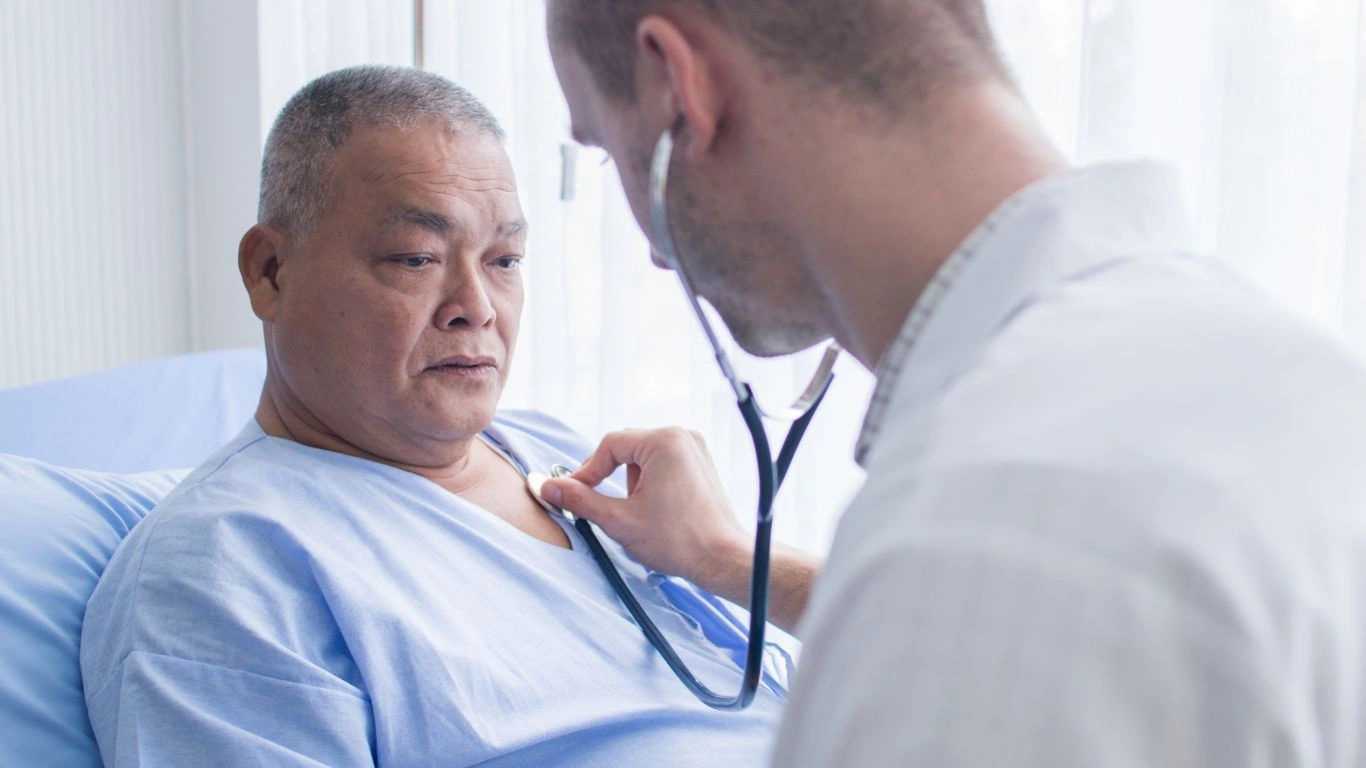
3. Managing Stress Effectively
Stress is another factor that can elevate your blood pressure, so finding ways to manage stress is essential. As a busy physician, I understand that stress can be overwhelming, but I also know how important it is to manage it effectively. Practicing relaxation techniques such as deep breathing, meditation, or yoga can help lower stress and, in turn, reduce your blood pressure.
Taking time for yourself each day to unwind and relax is vital for both your physical and mental health. Even small breaks throughout the day can make a huge difference in how you feel and your blood pressure levels. If you find that stress is taking a toll on your health, consider speaking with a therapist or counselor who can help guide you through effective stress management techniques.
4. Medications for Blood Pressure Control
For some people, lifestyle changes alone may not be enough to keep blood pressure at a healthy level. In these cases, medications are often necessary. There are various types of blood pressure medications, such as ACE inhibitors, calcium channel blockers, and diuretics, each working in different ways to lower blood pressure. It’s important to work closely with your doctor to find the right medication for you, as different medications may have different side effects.
Be sure to take your medications exactly as prescribed and attend regular follow-up appointments to monitor their effectiveness. With the right medication regimen, most patients can keep their blood pressure under control and significantly reduce the risk of vision problems related to hypertension.

Managing hypertension doesn’t just protect your heart and kidneys—it also protects your vision. By staying on top of your blood pressure and maintaining a healthy lifestyle, you can prevent long-term eye damage and ensure that your vision stays sharp for years to come. It’s a simple yet powerful way to safeguard your health and your quality of life.
How to Get the Most Out of Your Hypertension Treatment Plan
Now that we’ve covered the importance of managing hypertension and its link to blurry vision, it’s time to dive into how you can get the most out of your treatment plan. Managing high blood pressure and the associated risks, such as eye damage, requires a comprehensive and personalized approach. As a physician, I always emphasize that there is no one-size-fits-all solution. Every patient is unique, and a tailored approach is essential to keep your blood pressure in check and your eyes healthy.
In my experience, patients who actively engage in their treatment plan are the ones who see the best results. Hypertension is manageable with the right combination of lifestyle changes, medication, and regular monitoring. The more involved you are in your health, the better the outcomes will be. Below, I’ll share some practical tips that I often recommend to my patients to ensure they are getting the most out of their hypertension management plan.
1. Consistent Monitoring and Follow-Ups
One of the most important aspects of managing hypertension is regular monitoring. Hypertension is often referred to as the “silent killer” because it can go unnoticed for years. This is why regularly checking your blood pressure is crucial. If you’re not in a healthcare setting, a home blood pressure monitor can be a game changer. It’s easy to use, and you can keep track of your readings between doctor’s appointments.
In my practice, I always stress the importance of tracking your blood pressure consistently. Even if your numbers are looking good one day, that doesn’t mean they’ll be stable forever. Monitoring regularly helps you stay on top of changes and allows you to catch any concerning trends early. Keep a journal of your readings and share it with your healthcare provider during your visits. This will allow them to adjust your treatment plan if necessary.
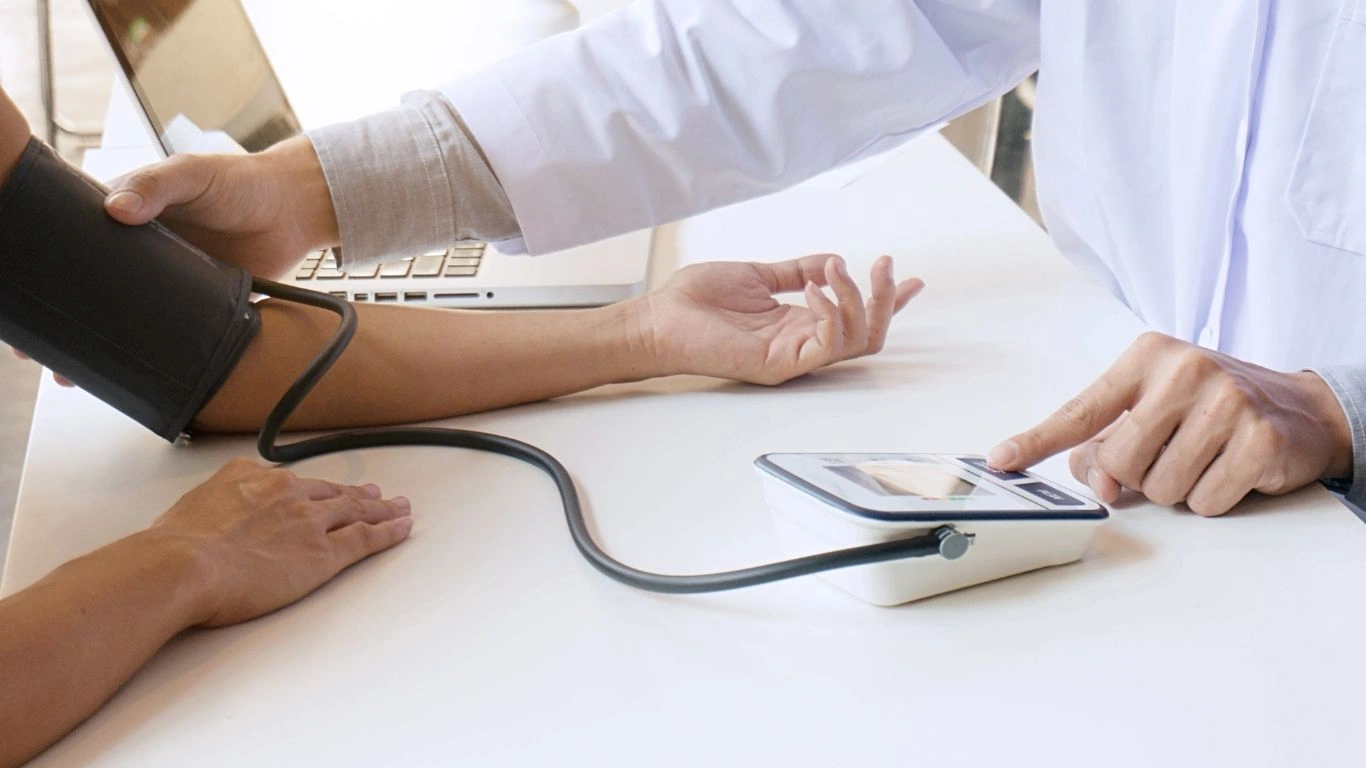
2. Medication Adherence: Don’t Skip Your Doses
For many patients, lifestyle changes alone aren’t enough to control hypertension. This is where medications come in. There are various types of blood pressure medications, including ACE inhibitors, beta-blockers, diuretics, and calcium channel blockers, among others. These medications can be life-changing, but only if they are taken as prescribed. Skipping doses or stopping medication without consulting your doctor can lead to a spike in blood pressure, which can, in turn, increase your risk for eye problems and other complications.
When starting a new medication, it’s natural to have questions or concerns. In my practice, I always encourage open communication. If you’re experiencing side effects, let your doctor know so they can adjust your medication. However, don’t just stop taking your medication without consulting your provider first—it’s vital to stay consistent. Doing so will give you the best chance of keeping your blood pressure under control and preventing long-term damage.
3. Combine Lifestyle Changes with Medication
While medications are often necessary, they should be viewed as part of a larger, holistic approach to managing hypertension. Lifestyle changes like adopting a heart-healthy diet, exercising regularly, and managing stress can all enhance the effects of your medication and improve your overall health.
From my personal experience, I’ve seen patients who were skeptical about making lifestyle changes, but when they did, they noticed incredible improvements in both their blood pressure and overall well-being. For instance, reducing salt intake, eating a diet rich in fruits and vegetables, and cutting back on processed foods can work wonders. Pairing that with regular exercise, like walking or swimming, and mindfulness practices like meditation can help reduce stress levels, all of which work together to manage your blood pressure.
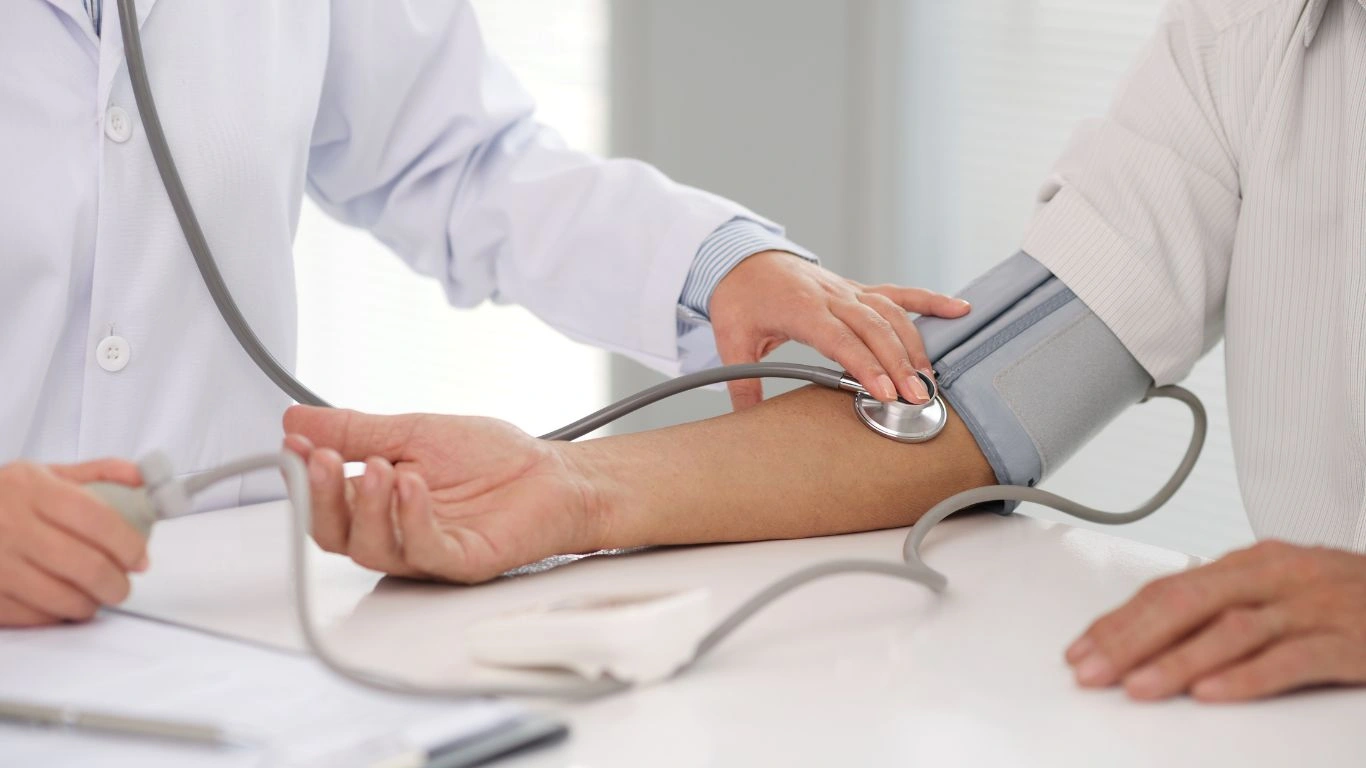
The Importance of Eye Health for People with Hypertension
As we’ve seen, the relationship between hypertension and blurry vision is a serious one. The more we talk about hypertension, the more I realize how often eye health gets overlooked. Hypertensive retinopathy can lead to vision loss, but it doesn’t have to. By regularly monitoring your blood pressure, attending eye exams, and addressing any early symptoms, you can avoid serious complications.
As an Internal Medicine Physician, I always urge my patients to take both their eye health and overall blood pressure management seriously. Regular eye exams are essential in detecting any early signs of damage to the retina. Even if you’re not experiencing symptoms like blurry vision, you should still schedule annual eye exams. Early detection is key when it comes to preventing irreversible damage.
It’s also important to note that other eye conditions, such as glaucoma, may also be more common in people with high blood pressure. That’s why comprehensive eye care is an integral part of a well-rounded approach to managing hypertension.
References and Additional Resources
For more information on hypertension and its impact on eye health, I highly recommend checking out the following resources:
- National Institutes of Health (NIH)
- Health.com
- Centers for Disease Control and Prevention (CDC)
- American Academy of Ophthalmology
Disclaimer
The content in this article is intended for informational purposes only and should not be used as a substitute for professional medical advice, diagnosis, or treatment. Always consult with your healthcare provider for personalized advice regarding your health conditions and treatment options. If you’re experiencing blurry vision or any other symptoms associated with high blood pressure, please see your doctor or an eye specialist as soon as possible. Early intervention is crucial for preventing long-term damage to your health.

Dr. Gwenna Aazee is a board-certified Internal Medicine Physician with a special focus on hypertension management, chronic disease prevention, and patient education. With years of experience in both clinical practice and medical writing, she’s passionate about turning evidence-based medicine into accessible, actionable advice. Through her work at Healthusias.com, Dr. Aazee empowers readers to take charge of their health with confidence and clarity. Off the clock, she enjoys deep dives into nutrition research, long walks with her rescue pup, and simplifying medical jargon one article at a time.

